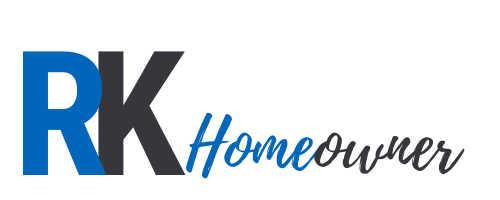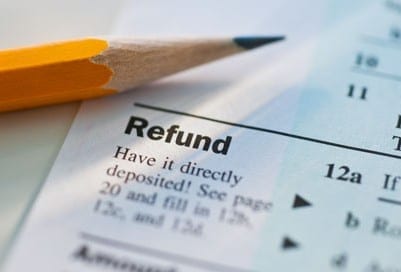Bad luck, bad advice leads to withheld tax refunds
What to do when a consumer proposal comes back to haunt you
Q: A few years ago my wife hurt herself very badly, forcing her to take long-term disability from work. At that time, we were denied her disability payments and spent the next two years fighting for that money. But, losing her income meant we struggled to pay our bills.
Eventually, we got so behind on our mortgage payments that we put our house up for sale and I filed for a consumer proposal. We were told not to bother adding my wife. The justification is that she had no income and no other assets, so no creditors would be able to get anything from her and that meant she didn’t need creditor protection.
My consumer proposal estimated our debt at around $33,000, which included an estimate of what we’d end up owing once our house sold. The proposal was accepted by our mortgage lender and a few months later the house finally sold.
Finally, late last year, my wife won her court case and started to receive disability payments. We thought the whole ordeal was over, but then we got a letter from CMHC stating that we still owed a debt on our now-sold home and that they’d be withholding her tax refunds until she paid the debt in full. What’s worse, is that our consumer proposal trustee has now told us that this money owed is considered unsecured debt and hurts our credit score.
Quite honestly, we’ve tried to take the high road. We notified our lenders when we couldn’t pay and made sure our house was in optimal shape so it could sell for the best price. But after everything we’ve been through it seems unfair that the bank got our money through the consumer proposal agreement and through CMHC, and that now we are once again responsible for the debt.
If we have to we’ll go to court again for my wife to get a consumer proposal, but the need to report our earnings monthly with this option seems like an extra burden to an already tiresome process. Do we have other options?
— Trying to take the high road, Chilliwack, B.C.
Answer from Romana King, senior editor and real estate specialist at MoneySense:
This is certainly a tough predicament. It sounds like you and your wife really tried to honour your debt obligations and seek out professional advice. And despite your efforts, you’re in a bit of a bind.
To appreciate what happened and what to do now, let’s take it one piece at a time.
The first piece is whether or not the Canada Mortgage and Housing Corporation can withhold your wife’s income tax refund. And the short answer is: yes.
How CMHC mortgage loan insurance works
When a buyer puts down less than 20% on a home purchase, the mortgage lender is required, by law, to take out mortgage loan insurance. This insurance helps protect lenders against mortgage default; it does not protect you, the homebuyer. The cost of this insurance is passed on to the homebuyer.
Now, when you filed a consumer proposal you essentially told your lender that you were unable to meet your mortgage obligation. Their acceptance of your consumer proposal meant they were accepting less money from you than what you owed. Once the house sold, however, your former mortgage lender would’ve had a shortfall on their books. To appreciate what I mean, consider this example.
→ You owe $250,000 on your outstanding mortgage.
→ In your consumer proposal, you agree to pay $1 for every $10 owed, so your mortgage lender ends up getting approximately $25,000 from you, meaning the lender now has a loss of $225,000.
→ Your house sells for $200,000. After transaction costs (realtor fees, lawyer fees, appraisal fees) the bank gets about $185,000. That means they still have a loss of $40,000.
To make up this loss, your former mortgage lender files a claim with CMHC and, because there was mortgage loan insurance taken out on this loan, CMHC pays the bank the money owed. But now CMHC has a loss on their books. So, they’ll search tax records to try and find who was on title for this property. They find you and your wife. Your debts are protected by the consumer proposal, but your wife’s income—now in the form of disability insurance payments—is not protected. So they put in an application to put a lien on your income tax refunds.
According to a CMHC spokesperson, your mortgage lender was “responsible for obtaining an enforceable judgment against all debtors for the amount of the loss…and [must then] transfer this judgement to CMHC for recovery and collection purposes.” In plain-speak, CMHC could not have come after you or your wife unless your filed paperwork stating that you owed the money. The CMHC spokesperson adds, “in Canada, mortgages are typically full-recourse loans, which means the borrower continues to be responsible for repaying the loan even in the case of foreclosure. Lenders can take legal action to recoup money from the homeowner if a foreclosed home is sold for less than the amount owing on the mortgage.”
Why CMHC is coming after your wife for this debt
The reason why CMHC is now coming after your wife is because she’s now earning income—her insurance payments—and, legally speaking, 100% responsible for the full debt owed. Debbie Gillis, credit counsellor with K3C Credit Counselling in Kingston, Ont., explains that when more than one person is on title for a mortgage then each person actually owes 100% of the loan. While we might assume that the debt is 50%/50%, it’s not, she says. “If one person declares bankruptcy, the responsibility for paying back the full loan amount falls on the shoulders of the other person.”
I should point out that in all the years that Gillis has been a credit counsellor, she’s noticed that CMHC rarely pursues a debt if it’s under a certain amount. “At around $30,000,” they’ll start legal proceedings to collect, she says.
Now, the second part of this tale is that your former trustee probably gave you some not-so-stellar advice. Not including your wife in the consumer proposal left her open to possible debt collection as soon as started earning money. Not great news for you or your wife.
Two possible solutions
While having to pay this debt might seem horrible, it’s not the worse part. The worst part is that the debt is hurting your credit score and it’s racking up interest.
To stop the negative impact of this debt, Gillis suggests approaching CMHC with a budget, documentation of your income and a proposal to pay a certain amount each month towards the debt. “The budget reflects what you currently pay on living expenses and your income documentation verifies how much you earn. Then ask if you can pay a set amount each month, say $100, and ask that they stop adding interest to the amount owed.” This does two things: You start earning a better credit score, because you’re paying your debt off in regular instalments, plus it stops adding to your debt load by preventing more interest from accumulating.
Of course, if you’re budget is absolutely stretched and you can’t afford to pay anything back, you can always opt to file a consumer proposal or bankruptcy for your wife.

